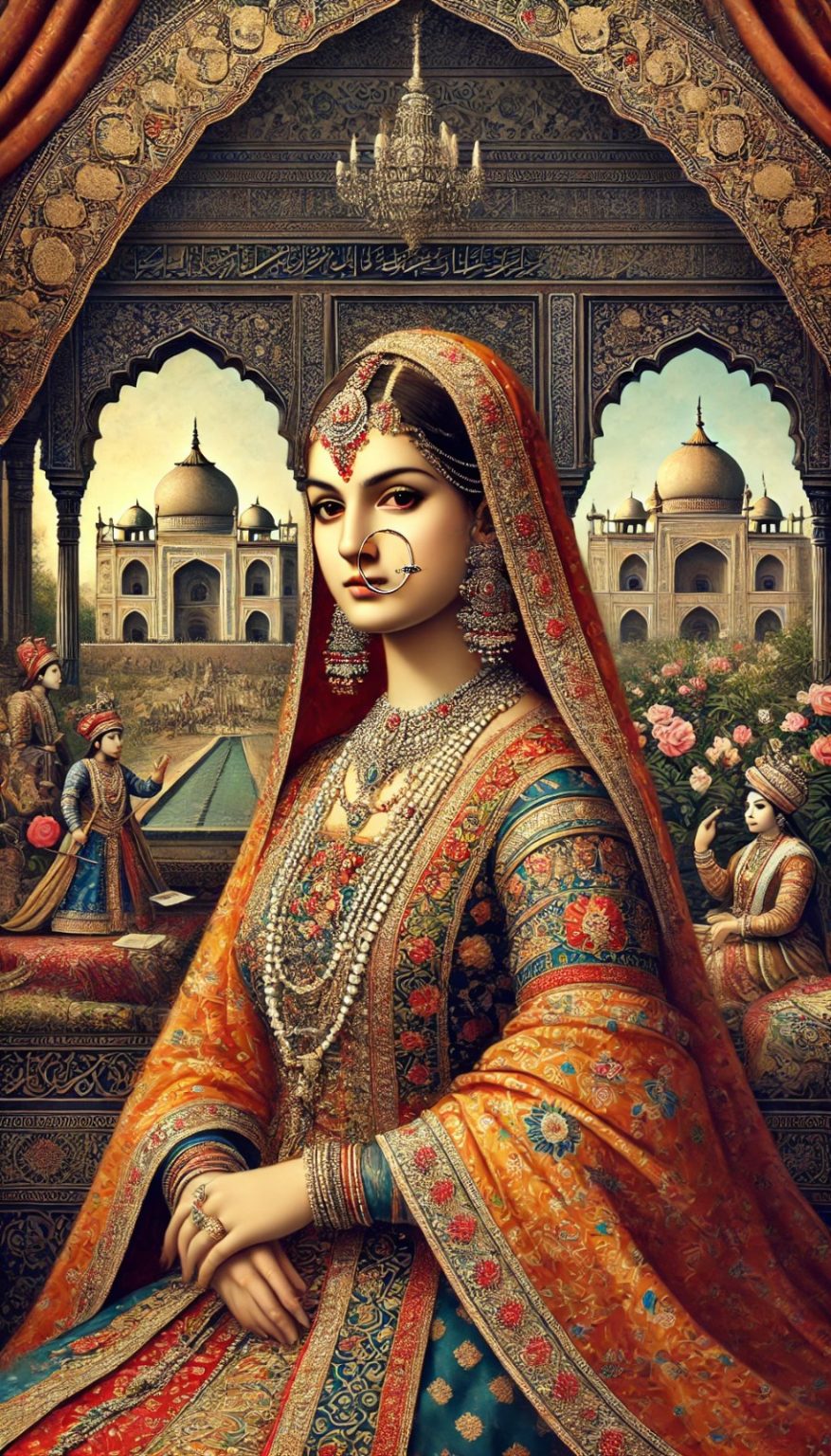In the opulent courts of the Mughal Empire, Noor Jahan emerged as one of the most powerful and influential women of her time. Born as Mehr-un-Nissa, her intelligence and beauty caught the eye of Emperor Jahangir, and their marriage marked the beginning of an extraordinary partnership.
Noor Jahan quickly rose to prominence, not just as the emperor’s wife, but as a formidable political force. Her sharp mind and political acumen earned her the title “Light of the World.” She took an active role in governance, issuing imperial orders and coins in her name, an unprecedented move for a Mughal empress.
Her influence extended beyond politics. Noor Jahan was a patron of the arts, architecture, and fashion. She designed exquisite gardens and commissioned beautiful buildings, leaving an indelible mark on Mughal architecture. Her love for fine textiles led to the creation of the intricate “Noor Jahan brocade,” a fabric that became highly sought after.
Noor Jahan’s strategic mind was evident in her handling of court politics and military matters. She led troops into battle, demonstrating remarkable courage and leadership. Her ability to navigate the complex power dynamics of the Mughal court kept the empire stable during tumultuous times.
Despite the patriarchal society in which she lived, Noor Jahan wielded her influence with grace and intelligence. She broke barriers and set new precedents for women in leadership roles. Her legacy is a testament to her extraordinary abilities and her indomitable spirit.
Noor Jahan’s story is a fascinating blend of romance, power, and intellect. Her life continues to inspire, highlighting the potential of women to lead with strength and wisdom, even in the face of societal constraints.



